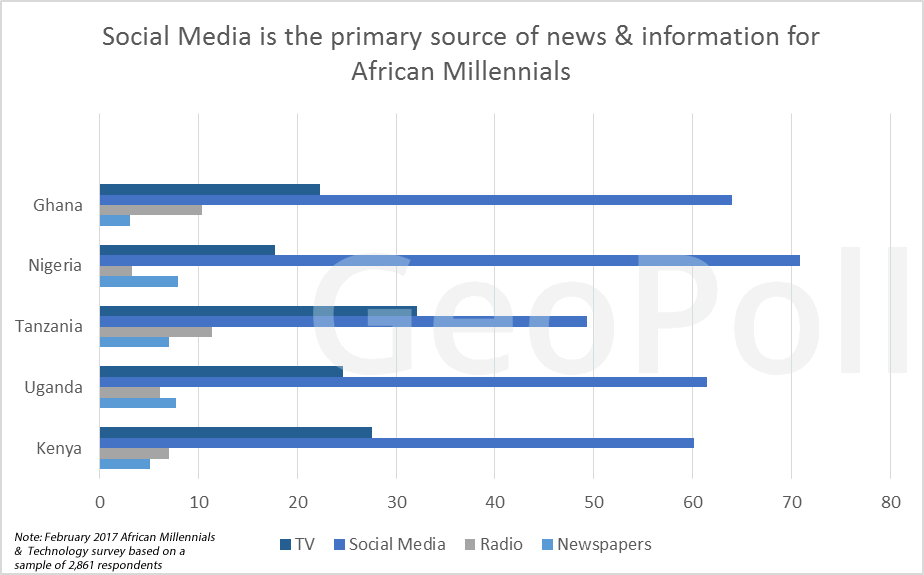A recent report by global consulting firm Frost and Sullivan estimates that Africa’s eCommerce market will reach $50 billion by 2018, up from just $8 billion in 2013. In particular, Nigeria is the biggest eCommerce hub in Africa, with the majority of Internet users shopping online. African companies are improving their eCommerce strategy to make the most of this trend.
So, what’s causing this eCommerce explosion? Below is a list of five contributing factors:
Increased mobile and Internet penetration
The recent African mobile technology revolution has made handsets and mobile phone plans affordable and accessible across the region. Consequently, more Africans are using mobile phones – with mobile penetration in Africa at over 80%, according to ITU.
The expansion of mobile infrastructure also allows people to use Internet-enabled smartphones. Now, even those in rural areas can connect to the Internet – desktop computers and broadband connections are no longer required. The percentage of Africans connected to the Internet through their mobile phones is predicted reach 37% by 2020.
As the Internet becomes an increasingly used tool, online shopping is becoming a popular way to buy goods and services. Many businesses are using mobile platforms to reach customers, through mobile apps and mobile-friendly websites.
OLX is one company making the most of increased mobile and Internet penetration in Africa. OLX has introduced websites and mobile apps through which both individuals and businesses can buy and sell online. So far, OLX has mobile apps for Kenya, Mozambique, Nigeria, and Uganda, allowing users throughout the continent to buy and sell quickly and easily.
Booming FinTech sector
There are many areas in Africa where formal financial infrastructure is lacking, leaving large numbers of the population unbanked. Statistics estimate that around 80% of African adults lack access to formal financial services. African startups are making the most of this opportunity to build a new kind of financial infrastructure. As a result, the financial technology (FinTech) sector in Africa is booming – introducing new ways for Africans to access financial services, contributing to economic growth.
Now, the cost involved in a starting a business is greatly reduced, as entrepreneurs no longer need to rely on banks to fulfill their financial business requirements. More eCommerce businesses are opening, and more people are able to make purchases online through eCommerce sites, even if they do not have bank accounts.
FinTech success can be seen most clearly through the popularity of mobile money and mobile wallets throughout the continent. Mobile money service M-Pesa is one such FinTech company – having processed 6 billion mobile transactions in 2016.
Mobile payment solutions
Mobile payment solutions are another factor contributing to eCommerce growth in Africa. These solutions provide ways for customers to access their money and carry out transactions. For businesses, new ways of accepting payments opens up new eCommerce opportunities.
Mobile money is one such solution that allows for easy online payments. It is exceedingly popular in Africa – in Kenya alone, 58% of adults access their money through a mobile device. Mobile money works using peer-to-peer based transactions. It relies on cash, and is not dependent on bank or card accounts, so it suitable for the unbanked population. Users deposit cash in the account and can pay for goods by transferring the money to a recipient’s mobile money account. Payment platforms, such as the one provided by Direct Pay Online, allow merchants to accept mobile money payments. This allows customers to make online purchases, even across borders, without hefty conversion fees and without the need for a bank account.
Digital wallets, also known as ewallets, are another way that users can make online payments with their mobile phones. An estimated 520 million Africans will opt to use digital wallets by 2020. An ewallet is a mobile payment app that stores payment information on the user’s smartphone – such as credit and debit card details. In a store that accepts ewallets, NFC technology can be used to make contactless payments, by holding the phone near to the retailer’s payment terminal. When it comes to eCommerce, ewallets are used to make extremely quick, secure online payments.
Young, tech savvy generation
African millennials are a tech savvy generation, increasingly dependent on mobile devices and technology. As with the rest of the world, young Africans enjoy using smartphones for communication, entertainment, and information. A recent GeoPoll survey, carried out among youth in five African countries, found that over 60% of African millennials use social media as their primary source of information.
These results reflect that fact that most millennials use social media, and the Internet, every day. Merchants are using social media platforms to advertise their eCommerce businesses and increase their conversion rates. It’s no question that these young people in Africa have a large part to play in the growth of eCommerce. Africa has the largest youth population in the world, and it continues to grow. Future generations are going to be even more tech-savvy than the youth of today, fueling the continuing development of the eCommerce industry in the region.
These four factors are acting as the driving force behind eCommerce in Africa – and none of them show any signs of decline. With this in mind, it’s clear that eCommerce is the future for African businesses.


